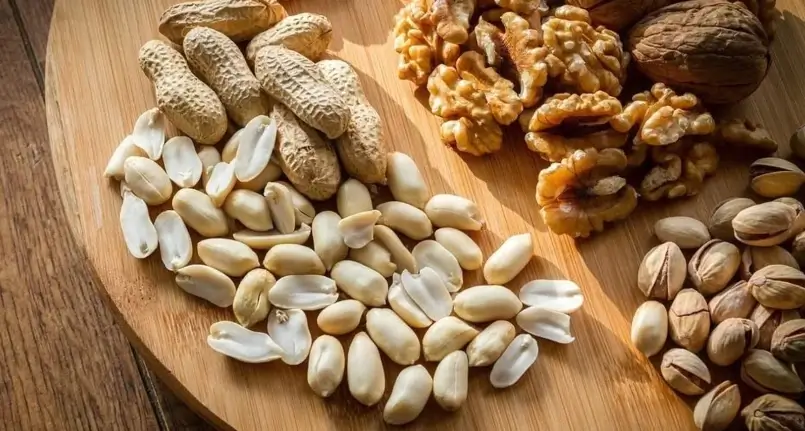Benefits against high cholesterol
Walnuts are among the foods useful for keeping cholesterol levels and cardiovascular risk under control, provided – of course – they are included in the context of a balanced diet and a healthy lifestyle. In fact, numerous studies have investigated and confirmed the benefits attributable to a diet rich in nuts ; although there are rare exceptions to the contrary, based on the results of these studies we can state that the consumption of 40-80 grams of walnuts per day, in a balanced diet, produces an average decrease in LDL cholesterol levels
A precious food
In nutritional terms, walnuts are particularly known for their high content of unsaturated fats . Examining the acid profile of dry food (see table), we note in fact how saturated fats represent less than 5% of the total lipid heritage; instead, the polyunsaturated fat content of the omega-six series is excellent, while the percentages of omega-three are moderate: nutrients quite rare in common foods, with the exception of fish and some vegetable oils (nut, hemp, seed flax and canola ).
| Nutritional values dried walnuts (100 g) | |
| Power | 612 KCal |
| Carbohydrates | 12.05 g |
| Protein | 24.9g |
| Total lipids | 56.98 |
| Saturated fat, total | 1.306 g |
| Monounsaturated fats , tot. | 10.425g |
| Polyunsaturated fats , tot. | 42.741g |
| of which omega-six of which omega-three |
33.727g 8.718g |
| Cholesterol | 0 mg |
| Vitamin E | 3.85mg |
In various studies, the optimal synergy between polyunsaturated fats has been shown to help reduce triglyceride and LDL cholesterol levels , without significantly affecting HDL levels or even increasing them slightly. This latter effect is also supported by the good content of monounsaturated fatty acids and in particular of oleic acid , the same which leads many nutritionists to recommend olive oil as a substitute for normal seed oils .
Another valuable nutrient that abounds in walnuts is the amino acid arginine , precursor of nitric oxide , a powerful vasodilator that contributes to the health of the arteries by keeping them flexible and preventing the formation of clots . Even vitamin E , contained in walnuts in excellent quantities, could contribute – in synergy with arginine and omega-3 fats – to counteract the formation of atherosclerotic plaques , thanks to its well-known antioxidant properties .
Finally, again with a view to reducing cholesterol levels, the role of plant sterols (or phytosterols ) and fibers could be very important , given that both contribute to reducing the intestinal absorption of dietary lipids. The fibers also favor the onset of the sense of satiety ; for this reason, walnuts can be eaten as a snack together with an apple or other fresh fruit, or to dress salads instead of the traditional seed oil.
Nuts yes, but in moderation!
Due to the high caloric value , if one decides to increase the consumption of walnuts to lower cholesterol levels and promote cardiovascular health, it is essential to consume this food as a replacement – and not in addition – to other foods, such as hungry instead of the traditional high-calorie snacks (crisps, croissants , various sweets). In fact, let us remember that severe overweight and obesity probably represent the most faithful allies of cardiovascular diseases ; therefore, it is essential to control the caloric intake of the diet, avoiding repeated excesses over time.




